-
Recent Posts
- New issue of Critical Education (vol. 17 no. 1, 2026)
- New article in Critical Education: Global Pedagogy and the Question of Palestine
- Special Issue Call for Papers — THE GREAT BEYOND: SURPASSING HISTORICAL DAMAGE AND PIVOTING TOWARDS PROTECTING BLACK BOYS
- New issue of Critical Education, Vol. 16 No. 1 (2025)
- New issue launch Workplace: A Journal for Academic Labor #35 (2024-2025)
Recent Comments
- Clionadh Finch on New issue of Critical Education (vol. 17 no. 1, 2026)
- E Wayne Ross on The Courage of Hopelessness: Democratic Education in the Age of Empire [Video]
- George Rammell on The Courage of Hopelessness: Democratic Education in the Age of Empire [Video]
- Shannon M on BC elementary school bans touching at recess #NoMoreTag #bced #yteubc #occupyeducation
- SD61 Board Meeting, June 17, 2013: The Record Off The Record: It Sounds So Nice | Lined Paper on BC schools face total budget shortfall of $130 million #bcpoli
Archives
- February 2026
- December 2025
- November 2025
- May 2025
- January 2025
- November 2024
- October 2024
- September 2024
- January 2024
- October 2023
- August 2023
- December 2020
- May 2020
- March 2020
- January 2020
- August 2017
- March 2017
- February 2017
- January 2017
- September 2016
- July 2016
- May 2016
- February 2016
- January 2016
- October 2015
- June 2015
- April 2015
- February 2015
- January 2015
- May 2014
- November 2013
- October 2013
- September 2013
- August 2013
- July 2013
- June 2013
- May 2013
- April 2013
- March 2013
- February 2013
- January 2013
- December 2012
- November 2012
- October 2012
- August 2012
- July 2012
- June 2012
- May 2012
- April 2012
- March 2012
- February 2012
Categories
- Academic freedom
- Adjuncts
- Administration
- BC Education
- Budgets & Funding
- CAUT
- CFPs
- Civil Liberties
- Commentary
- Conferences
- Contracts
- Corporate University
- Critical Education
- Disputes
- Environment
- Equity
- Ethics
- Faculty
- Free speech
- Governance
- Government
- Idle No More
- Job cuts
- K-12 issues
- Layoffs
- Legal issues
- Organizing
- Privatization
- Protests
- Publishing
- Research
- Salary/Economic Benefits
- Strikes & Labor
- Student Movement
- Student Speech
- Students
- Talks and seminars
- Teachers
- Tenure & Promotion
- Testing
- Textbooks
- Uncategorized
- Unions
- University Presidents
- Violence
- Working condition
Meta
-
Author Archives: E Wayne Ross
The Legacy of Ferguson: A Referendum on Citizenship Denied
Critical Education has just published its latest issue at
This special issue of Critical Education, entitled “The Legacy of
Ferguson: A Referendum on Citizenship Denied,” presents papers about Ferguson, several of which were presented as part of a panel on Ferguson held at the College and University Faculty Assembly (CUFA) conference of the National Council for the Social Studies in 2015. Anthony J. Castro and Alexander Cuenca are the issue editors and have added additional articles to
address issues in Baltimore and to reflect back on Ferguson two years later.
As Castro notes in his introduction to this issue “as we arranged these pieces, we felt struck with an overwhelming sense of purpose. We have to keep this conversation real and alive. So with hope in our hearts and hands ready to toil with patience and persistence, we invite you to join the struggle, because Black Lives Matter.”
Thanks for the continuing interest in our work,
Sandra Mathison
Stephen Petrina
E Wayne Ross
Co-Editors, Critical Education
Institute for Critical Education Studies
University of British Columbia
Critical Education
Vol 8, No 2 (2017)
Table of Contents
The Legacy of Ferguson: A Referendum on Citizenship Denied
——–
Hope and Persistence: The Legacy of Ferguson Introduction to the Special Issue of Critical Education
Anthony J. Castro
Ferguson and the Violence of Indifference in Our Classrooms
Alexander Cuenca
Black Lives Matter: Reflections on Ferguson and Creating Safe Spaces for Black Students
Mariah Bender
Same As It Ever Was: Ferguson, Two Years Later
Lauren Arend
My Reasonable Response: Activating Research, MeSearch, and WeSearch to Build Systems of Healing
Ty-Ron Douglas
The Media and Black Masculinity: Looking at the Media Through Race[d] Lenses
LaGarrett King
Turning a Moment into a Movement: Responding to Racism in the Classroom
Terrie Epstein
Call for Manuscripts: Radical Departures: Ruminations on the Purposes of Higher Education in Prison
Critical Education
Call for Manuscripts: Radical Departures: Ruminations on the Purposes of Higher Education in Prison
Series Editors:
Erin L. Castro, University of Utah
Mary Rachel Gould, Saint Louis University
Higher education in prison is experiencing a moment of increased attention throughout the United States. The Second Chance Pell Program, an Experimental Sites Initiative facilitated by the U.S. Department of Education, has helped to propel access to education inside prisons into mainstream discourse. The commonsense justification provided for increasing access to higher education in prison, a bipartisan language spoken across the political landscape, hinges on a compelling rationale: access to higher education in prison reduces recidivism, lowers cost, and increases safety and security. Departing from conventional logic regarding the rationale for higher education in prison, this special edition considers possibilities and futurities regarding postsecondary educational opportunity made available inside prisons.
The series aims to explore how various educational theories and theorists can inform understandings of and desires for higher education in prison. We invite manuscripts that provide imaginative and theoretically grounded visions for postsecondary education inside prisons that are disentangled from the logics of the carceral state and the afore mentioned commonsense rationales for higher education in prison. Authors are invited to put on hold narrow discourses of recidivism to explore higher education inside prison through conceptual, empirical, theoretical, pedagogical, narrative, and poetic articles that approach this topic from a variety of perspectives, frameworks, and positionalities.
In considering higher education in prison, we especially seek manuscripts authored and/or co-authored by currently incarcerated and formerly incarcerated people, co-written essays among diverse stakeholders, and other creative configurations.
Manuscripts may examine, but are not limited to, the following questions:
What does it mean to teach and/or learn on inside prisons?
How can educational theory inform possibility inside prison classrooms?
What does/should education mean inside prisons during hyperincarceration?
What should be the purposes of higher education in prison?
How can/do various educational theories take root inside prison classrooms?
Which theoretical bodies are useful in (re)imagining and (re)engaging higher education in prison?
How do examples in practice provide potential for re-theorization?
Manuscripts due: May 1, 2017.
For details on manuscript submission see: Critical Education Information for Authors
Additional questions can be directed to Erin L. Castro: erin.castro@utah.edu.
New Issue of Critical Education: IN DEFENSE OF COMMUNISM AGAINST CRITICAL PEDAGOGY, CAPITALISM, AND TRUMP
Abstract
In this essay I challenge the anticommunism that has dominated critical pedagogy since its emergence in 1980, which coincided with imperialism’s somewhat successful counter-offensive against the global communist movement. It is within the context of the absence of communism and the communist movement that paved the way for the rise of Trump and the far right more generally. The anticommunism central to progressive forms of education, from a non-capitalist perspective, represents nothing less than the crossing of class lines. After outlining the major premises this work is grounded in, situated within a common debate between Marxism and Native studies, I review key responses to anticommunist propaganda. I then provide a brief history of the Soviet Union offering concrete responses to the anticommunism that has infected those of us on the educational left, especially in North America. I then offer a short discussion of the Black Panther Party as another example of the current relevance of the communist legacy in the United States and how this legacy has been systematically under attack. The text concludes with a brief summary of some of the core principles of the Party for Socialism and Liberation (PSL) as an example of a contemporary U.S.-based Marxist-Leninist communist party endowed with the necessary analysis and organizational structure to challenge capitalism and imperialism under a Trump presidency.
Keywords
Marxism; Marx; History; Critical Pedagogy; Communism; Anti-Communism; Social Class; Class War; Donald Trump
ICES Seminar: Curricular ideologies in the discussion and negotiation of the Chilean social studies curriculum
Institute for Critical Education Studies
Open Seminar
Monday, September 26, 2016
Noon – 1:oopm
Scarfe 1209
University of British Columbia
Curricular Ideologies in the Discussion and Negotiation of the Chilean Social Studies Curriculum
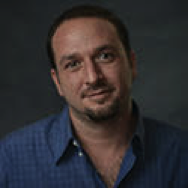 Renato Gazmuri, PhD
Renato Gazmuri, PhD
Assistant Professor at Universidad Diego Portales (Chile). Dr. Gazmuri received his PhD at the Autonomous University of Barcelona (Spain)
Abstract: The Chilean social studies curriculum has been defined through processes of discussion and negotiation between diverse actors and institutions with different views on the subject. In order to identify and describe these ideologies, a sequential and recursive methodological device was designed and applied in three stages of production and analysis of information: a documentary compilation around three curricular events of debate and negotiation, application of questionnaires, and interviews. At each stage a content analysis was performed. Five curriculum ideologies are identified and described, considering their assumptions about how the curriculum should define the subject matter, as well what its aims, contents and its guidelines for teaching.
Radical Departures: Ruminations on the Purposes of Higher Education in Prison
Call for Manuscripts:
Critical Education
Radical Departures: Ruminations on the Purposes of Higher Education in Prison
Series Editors:
Erin L. Castro, University of Utah
Mary Rachel Gould, Saint Louis University
Higher education in prison is experiencing a moment of increased attention throughout the United States. The Second Chance Pell Program, an Experimental Sites Initiative facilitated by the U.S. Department of Education, has helped to propel access to education inside prisons into mainstream discourse. The commonsense justification provided for increasing access to higher education in prison, a bipartisan language spoken across the political landscape, hinges on a compelling rationale: access to higher education in prison reduces recidivism, lowers cost, and increases safety and security. Departing from conventional logic regarding the rationale for higher education in prison, this special edition considers possibilities and futurities regarding postsecondary educational opportunity made available inside prisons.
The series aims to explore how various educational theories and theorists can inform understandings of and desires for higher education in prison. We invite manuscripts that provide imaginative and theoretically grounded visions for postsecondary education inside prisons that are disentangled from the logics of the carceral state and the afore mentioned commonsense rationales for higher education in prison. Authors are invited to put on hold narrow discourses of recidivism to explore higher education inside prison through conceptual, empirical, theoretical, pedagogical, narrative, and poetic articles that approach this topic from a variety of perspectives, frameworks, and positionalities.
In considering higher education in prison, we especially seek manuscripts authored and/or co-authored by currently incarcerated and formerly incarcerated people, co-written essays among diverse stakeholders, and other creative configurations.
Manuscripts may examine, but are not limited to, the following questions:
- What does it mean to teach and/or learn on inside prisons?
- How can educational theory inform possibility inside prison classrooms?
- What does/should education mean inside prisons during hyperincarceration?
- What should be the purposes of higher education in prison?
- How can/do various educational theories take root inside prison classrooms?
- Which theoretical bodies are useful in (re)imagining and (re)engaging higher education in prison?
- How do examples in practice provide potential for re-theorization?
Manuscripts due: May 1, 2017.
For details on manuscript submission see: Critical Education Information for Authors
Additional questions can be directed to Erin L. Castro: erin.castro@utah.edu
EDCP Seminar: Abraham DeLeon “A Schizophrenic Scholar out for Stroll: Multiplicities, Becomings, Conjurings”
Tagged Abraham DeLeon, Curriculum and Pedagogy, EDCP, Research, seminar, talks, UBC, UTSA
ICES Seminar: Curricular Discourses with Practical Implications: Perspectives and Experiences From Spain & South America
Public Seminar
Institute for Critical Education Studies
September 22, 2016
11:30am – 1:30pm
Scarfe 310
University of British Columbia
Curricular Discourses with Practical Implications:
Perspectives and Experiences From Spain & South America
This seminar brings together scholars from Spain and South America working within a variety of curriculum studies traditions to discuss curriculum issues in contexts ranging from elementary education to higher education. The seminar will be an opportunity to explore how curricular discourses have implications in educational practices in local, national, and global contexts.
 A National Curriculum: Educational Standardization or Common Cultural Base
A National Curriculum: Educational Standardization or Common Cultural Base
Renato Gazmuri, Assistant Professor, Universidad Diego Portales (Chile).
Dr. Gazmuri received his PhD at the Autonomous University of Barcelona (Spain)
S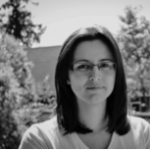 tudent Activism: Building an Alternative Educational Logic in Opposition To Corporatized Learning
tudent Activism: Building an Alternative Educational Logic in Opposition To Corporatized Learning
Sandra Delgado (Colombia)
PhD Student in Curriculum Studies, University of British Columbia
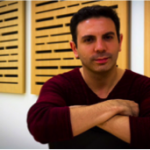 Curriculum as Symptom: Local Experiences of Global Designs
Curriculum as Symptom: Local Experiences of Global Designs
Fernando M. Murillo (Chile)
PhD Student in Curriculum Studies, University of British Columbia
Critical Literacy in the Social Studies Elementary Classroom
Breo Tosar (Spain)
PhD Student in Social Studies Education, Autonomous University of Barcelona
Human Rights in the Curriculum: Precarity and Complexity
Héctor Gómez (Chile)
PhD Student in Curriculum Studies, University of British Columbia
Tagged Research
Seminar: Challenges and Tensions in Curriculum Management: Theory and Practice
Challenges and Tensions in Curriculum Management: Theory and Practice
Public Seminar Sponsored by
Institute for Critical Education Studies
July 13, 2016
12:00pm
Scarfe 2108
2125 Main Mall
University of British Columbia
Carolina Castro, Héctor Gómez, and Fernando Murillo, co-authors in the recently published book Desafíos y Tensiones en la Gestión Curricular: Teoría y Práctica [Challenges and Tensions in Curriculum Management: Theory and Practice] in Chile, will present their contributions to the discussion of curriculum design, development and implementation in the contexts of schools and higher education.
The book, co–edited by Gómez and Castro, gives voice to a variety of perspectives and experiences in schools and higher education. In this regard the authors ask: How is curriculum managed? Who is involved in the process and how? What authority do curriculum managers have, and how is power distributed in order to influence and make decisions on the curriculum? What effective spaces for innovation exist? How are perennial and new issues considered in the management of curriculum?
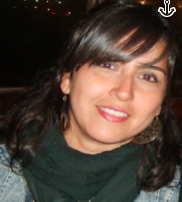 Curriculum Design and the Teaching Role: An Outstanding Relationship. Reflections From Research at a Hospital-Based School
Curriculum Design and the Teaching Role: An Outstanding Relationship. Reflections From Research at a Hospital-Based School
Carolina Castro
Bachelor in Education – Primary School Teacher, Master of Arts in Education and Curriculum. Head of the Curriculum Unit at Universidad Católica Silva Henríquez in Santiago, Chile.
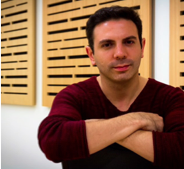 Professional Formation Beyond the Know-How: Considerations and Challenges for a Post-Competence Curriculum Management
Professional Formation Beyond the Know-How: Considerations and Challenges for a Post-Competence Curriculum Management
Fernando M. Murillo
Bachelor in Education – TEFL, Master of Arts in Education and Curriculum, UBC PhD student in Curriculum Studies
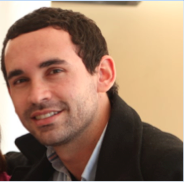 Teacher Education in Chile: Curriculum design and its Complex Discourses.
Teacher Education in Chile: Curriculum design and its Complex Discourses.
Héctor Gómez
Bachelor in Education – Teacher of History and Social Sciences, Master of Arts in Education and Curriculum, UBC PhD Student in Curriculum Studies
CFP: (Re)Considering STEM Education
Critical Education Special Series: Call for Papers
(Re)Considering STEM Education: A Special Series in Critical Education
Series Co-editors:
Mark Wolfmeyer, Ph.D., Kutztown University of PA
wolfmeyer@kutztown.edu
John Lupinacci, Ph.D., Washington State University
john.lupinacci@wsu.edu
Critical Education provides a space for inquiry into the philosophies and contexts of educational priorities set by today’s global elite and the role of STEM Education in the political and economic restructuring of education and educational research. The time is now for an ongoing, dedicated space that deconstructs and reconstructs the interdisciplinary, ubiquitous, powerful and perhaps dangerous STEM (Science, Technology, Engineering and Mathematics). The series title reflects our concerns and suggests a space for dedicated inquiries taking up oppositions to—and substantive and timely reframings of—STEM. It is the desire of the editors of this series to cultivate a series of articles from a diverse array of educational research occurring both within and from outside the critical-foundations community. The special series continues a long tradition of such critique, at least those occurring in STEM related journals like For the Learning of Mathematics, Journal of Urban Mathematics Education and Cultural Studies of Science Education, and will be the first location dedicated specifically to critical explication of STEM on the whole.
We invite manuscripts that contribute to understanding and defining STEM education in a variety of ways, from critical curricular and pedagogic explorations of STEM contents on their own and in total, to broader conception of STEM such as the infiltration of STEM culture throughout higher education and research programs. In considering STEM, we especially seek explorations (re)considering how STEM perpetuates systems of domination and hierarchy while potentially offering unexpected moments for reformations that foster alternatives. In other words, how is mainstream STEM a part of the problem? In (re)considering STEM, we hope contributions will provide the opportunities for scholarly projects that range from policy to grant research, curriculum to media, experiences in STEM education from diverse students, and from teacher innovation to student resistance.
The issue aims to critique STEM but also present it as a space for critical examinations that move beyond the traditional perspectives reproducing the dominance of STEM. Such endeavors might include but are not limited to manuscript submissions that draw from a variety of frameworks appropriate to critical-foundations work, including critical theories like, ecojustice education, critical race theory and critical disability studies and with goals that counter neoliberal projects and embrace community, democracy, anarchism and anti-capitalism. In general, this series seeks to foster an ongoing scholarly conversation through manuscripts that broadly engage the question: How are critical scholars engaging and working within STEM educational spaces and/or habits of mind?
All manuscripts, including references and notes, should be 4000-6000 words. Authors are encouraged to submit complete manuscripts that match this call for papers as soon as possible. For now, this is an open call lasting at least through December, 30 2016.
All manuscripts are subject to the journal’s blind peer review process and are to be submitted online at http://ices.library.ubc.ca/index.php/criticaled/about/submissions#onlineSubmissions).
Pending review and the editors’ approval, articles will be published in this special series of Critical Education. Articles should follow the journal style guidelines of APA 6th Edition
(For info: http://ices.library.ubc.ca/index.php/criticaled/about/submissions#authorGuidelines)
We also encourage essay reviews of books on these subjects. For more information about submitting a book review contact the editors. Reviews should be approximately 2500 words.
If you have any further questions, please don’t hesitate to contact us.
Mark Woflmeyer (wolfmeyer@kutztown.edu) and John Lupinacci (john.lupinacci@wsu.edu)

 Follow
Follow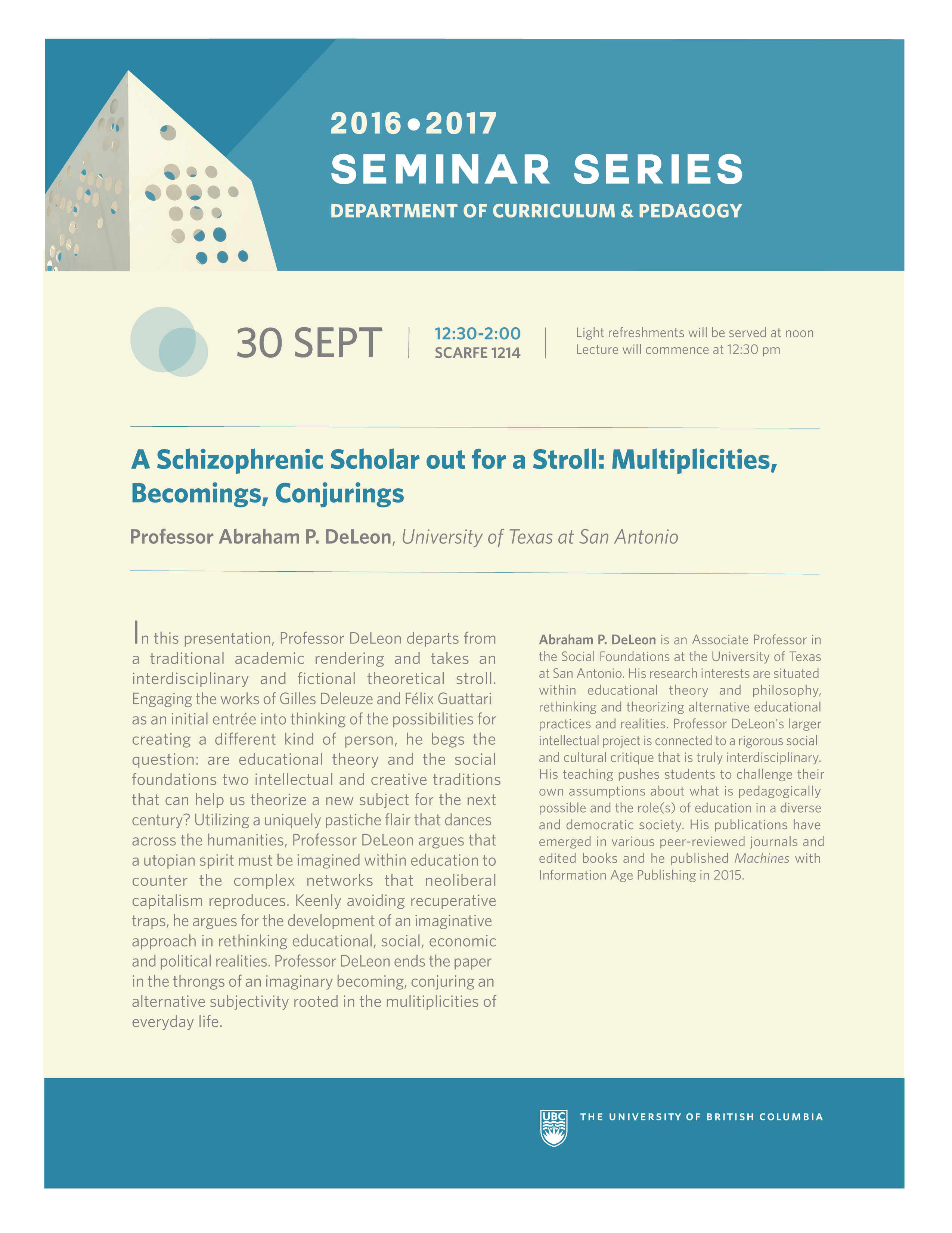


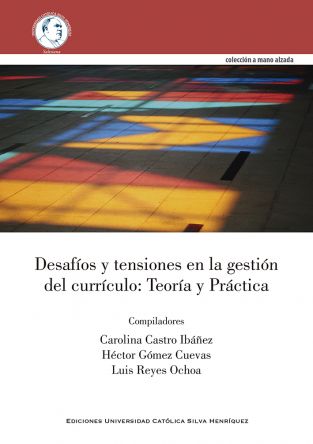

Revisiting “First Survival University” Via Keith Melville’s Book on the “Fielding Model”
Revisiting “First Survival University” Via Keith Melville’s Book on the “Fielding Model”
By Four Arrows
I think it’s important to spend a few minutes pondering what happened on November 8, a date that might turn out to be one of the most important in human history, depending on how we react. (The new administration) is dedicated to racing as rapidly as possible toward the destruction of organized human life. There is no historical precedent for such a stand.
—Noam Chomsky (from an interview with C.J. Polychroniou entitled “Trump in the Whitehouse”)
On June 16, 2015, Truthout published a piece entitled “The First Survival University?” It was about the effort of the president of Fielding Graduate University (FGU) to create a vision and mission for its new school of leadership studies that would orient all coursework to specific social/ecological justice, diversity and ecological sustainability topics in recognition of the serious threats to human surviving and thriving. As Chomsky’s quote above indicates, such education is especially important in light of the incoming Trump administration. This plus the recent publication of Melville’s book about the history of FGU’s founding vision offer a timely and perhaps persuasive opportunity for revisiting the Truthout article’s hopeful premise.
The proposed curriculum the FGU president offered focused on students and faculty working toward creative and well-studied solutions to four of what the president’s team considered to be the most important challenges facing the world today. These included:
The specificity of such a vision was a courageous approach that might indeed have made FGU the first university to truly focus doctoral education on human survival. However the question mark in the title of the essay conveyed the understanding of the article’s author that there would be pushback that might prevent university wide acceptance of the vision. In fact shortly after publication, the faculty tabled it, suggesting a significantly watered down option that no longer focused exclusively on the four survival issues nor even exclusively on justice and sustainability. Eventually, however, a worthy, if still less concrete, vision did emerge. The FGU website now boasts a vision that states “We are an innovative global community dedicated to educating scholars, leaders, and practitioners in pursuit of a more just and sustainable world.” The mission aligns as it should with the vision and reads:
We provide exemplary interdisciplinary programs within a distributed and relational learning model grounded in student-driven inquiry and leading to enhanced knowledge. This community of scholar-practitioners addresses personal, organizational, societal, ecological, and global concerns in pursuit of a more just and sustainable world (FGU website).
Whether or not this vision and mission actually leads to FGU pursuing a more just and sustainable world still remains to be seen. However, my read of Melville’s new book, A Passion for Adult Learning: How the Fielding Model is Transforming Doctoral Education, offers some hope that FGU can still achieve a level of commitment worthy of being the first doctoral program focusing on human surviving and thriving in the throes of our facing possible mass extinction. This said, I do not intend for this essay to be a book review. Suffice it to say that Melville’s thorough, graceful writing about Fielding’s unique and continuing experiment in higher education engaged me as might any well-told story. Rather, I use his historical description and interpretive analysis to underscore his more subtle references to Fielding’s early innovative commitment to justice and diversity, a commitment that is still “in the woodwork.” My goal is to to use the history of Fielding that Melville presents to accept the challenge he describes himself:
Early on in Melville’s book he refers to how the three main “visionary” founders of Fielding (Hallock Hoffman, Renate Tesch, Frederic Hudson, Marie Fielder and Don Bushnell) asked themselves fundamental questions about adult education such as “What is higher education’s purpose” and “Does it make sense to organize higher education according to academic disciplines” (p.21)? Their answers led to a model for education which “emphasizes the practical application of knowledge in the context of social practice” (p.27). For Hudson, whose own dissertation “explored individual responsibility for social justice”, there was a “connection between doctoral education and social and political action” (p.36).
Hoffman, along with another early contributor to the forming of the Fielding model, Don Bushnell, had spent years “practicing a form of lay therapy called Re-evaluation Counseling” that helped people undue past hurts in ways that would increase their “potential to create a more peaceful and non-exploitive society” (p.51). Hoffman, according to a personal conversation I had with Don Bushnell, was also a fan of Robert Redfield, the University of Chicago researcher who pioneered social anthropology and wrote about what he considered to be the tragic consequences of a dominant Western worldview having taken over an Indigenous worldview that had guided humanity for most of its history. Bushnell claimed that part of the naming of Fielding came from honoring the work of Mary Fielder and Robert Redfield.
Marie Fielder herself was “a scholar, activist, and feminist, and an authority on action research who was nationally recognized as an influential leader in the field of diversity…She recognized Fielding’s potential to serve…the values to which she was devoted: a commitment to social and environmental justice, to diversity and social change.”
As for Renate Tesch, who was one of the three originating founders along with Hoffman and Hudson, brought an emphasis on rigorous qualitative dissertation research to the program. “When Renate died in 1994, twenty years after the founding of Fielding, she was memoralized for her many contributions to Fielding, and for her unflagging commitment as a feminist and a scholar” (p.53).
According to Melville, the founders saying they all wanted to “create a different kind of learning community in which scholarship and practice are closely joined” (p.60). They intended that “higher education was not just to help individuals prepare for their careers.” It was to “serve a public purpose” (p.136). Melville reveals how growing competition, accreditation standards and other political influences in recent years have compromised on the early Fielding vision. He admits that “finding a way to honor both its commitment to high intellectual standards and its commitment to social change has been an on-going challenge” and that the “public purposes have not consistently been reflected in the curriculum of Fielding’s programs” (p.137). Although he believes the “strong commitment to social justice, racial equality and ecological sustainability shared by most faculty has been expressed in various initiatives” (p. 137), he reveals some concerns in his sixth chapter, “Mission Drift (Utopia Visions and Contested Commitments).”
He opens this chapter with a quote from Hallock Hoffman:
In this chapter Melville writes about the “utopian aspirations” of the founders and the era in which Fielding was started. He describes it as “a period of unusual social and political turmoil,” a “flowing distrust of authority” and a “yearning for instituional reinvention” (p.146). He speaks of Hallock Hoffman asking “Must institutions inevitably move from charisma to bureaucracy and hence become routinized and abstract?” In Chapter 9, his last chapter, Melville offers several responses to this question. The one pertinent to the theme of this paper relates to “reviving education’s public purpose” (p. 196). He writes, “Today, that public purpose has receded. College and graduate degrees are most often regarded as a private good, as career-enhancers-an experience that individual students and their families purchase to further their own ecological and professional prospects” (p. 196). He then closes the chapter with a quote from Hoffman about imagining Fielding anew.
What strikes me about the quote is how it can have two meanings today. Hoffman says (in his speech at the 10th Fielding celebration that “it is harder to imagine anew when you first have to put a present reality our of your mind, and it is harder to turn dreams into actions when hundreds of men and women already possess well developed expectations of continuity” (p.200). One meaning is that we have become hypnotized by educational hegemony so thoroughly at this point in time that the status-quo seems best. Another is that there is now an awakening of such hegemonic realities caused by the coverage of the Trump administration’s stated ambitions its selected functionaries for them. If this becomes the present reality that people perceive, then it should not be more difficult to let go of any expectations of continuity.
If beginning in 2017, FGU is again positioned to realize and act upon the priorities and commitments required for becoming “the first survival university.” I know of no other doctoral programs offer this highest opportunity for social change leaders, that are so close to becoming once again a pioneer for the next decade’s educational needs.
suggested by the words of Hallock Hoffman at Fielding’s tenth anniversary celebration that Melville uses for the final paragraph of his book:
Leave a comment
Tagged Commentary, Corporate University, Four Arrows, higher education, Trump